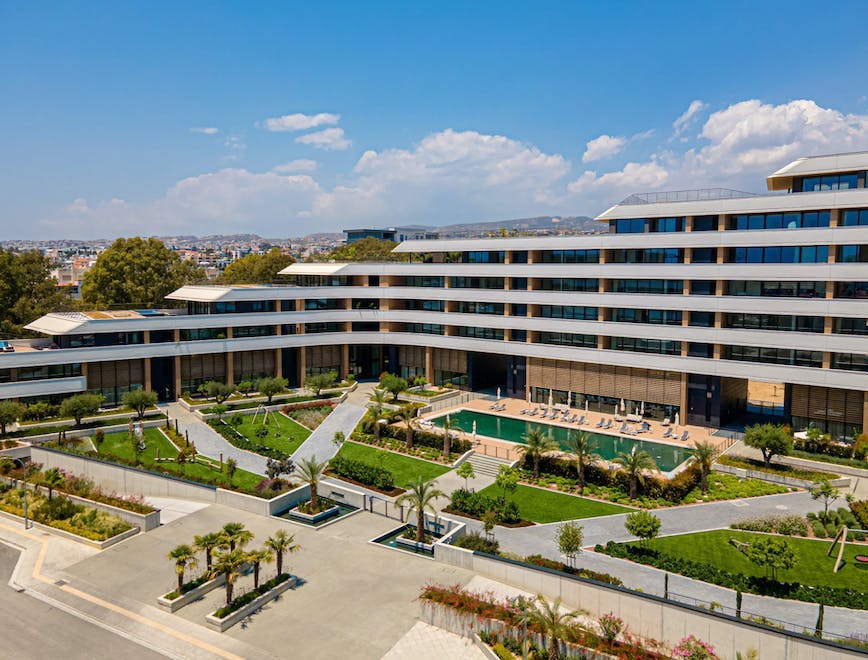High-Tech Architecture: 5 Buildings to Know
Originating in the 1970s, the high-tech architectural trend, often labeled "late modernism" or "structural expressionism", showcases innovative technology and lightweight materials. L'Officiel Cyprus highlights five such iconic structures in Europe, notable in settings like skyscrapers and vast public areas.
The high-tech architectural wave, originating in the 1970s, is marked by cutting-edge technological advancements, groundbreaking engineering solutions, and a hopeful vision for the future. Sometimes referred to as "late modernism" or "structural expressionism", this architectural style is defined by its vibrant steelwork, versatile interiors, and the use of featherweight materials. It's a go-to choice for structures such as skyscrapers, airports, stadiums, and extensive public spaces. In 1963, architects including Norman Foster, Richard Rodgers, Su Brumwell, and Wendy Cheeseman founded Team 4, a firm that excelled in crafting this expressive architectural style.
Reichstag, Berlin, Germany
Norman Foster's 1999 design of the Reichstag dome in Berlin stands as a testament to modern engineering and innovative solutions. With its transparent architecture, it offers a 360-degree view of Berlin while symbolising freedom and democracy. This design goes beyond aesthetics, incorporating sustainable energy solutions and heating mechanisms.
Centre Pompidou, Paris, France
Designed by a team including Gianfranco Franchini, Mike Davies, Peter Rice, Renzo Piano, and Richard Rogers in 1976, the Centre Pompidou stands out as a prime example of high-tech architecture. Renzo Piano describes it as a massive spacecraft made from glass, steel, and coloured tubes, stationed right in Paris's heart. With its unique "inside-out" design, this iconic landmark offers adaptable interior spaces, catering to diverse exhibition requirements. The building's facade uses a colour-coded system to identify its functional aspects, making it a true modern art spectacle.
Sainsbury Centre for Visual Arts, Norfolk, UK
In 1978, Norman Foster, along with Wendy Foster, crafted a building for Sir Robert and Lady Sainsbury's donation to the University of East Anglia. Echoing an airplane hangar's aesthetic, the space was drawn from industrial inspirations. The central attraction here is the ceiling, with light effects described by Charles Jenks as "mesmerising and unparalleled in scale".
Madrid Barajas Airport Terminal 4, Madrid, Spain
A collaborative project between Estudio Lamela & Richard Rogers Partnership in 2005, this terminal stands out with its organic bamboo roof and a design that blurs boundaries with the external environment. It's not just about looks; the airport also features passive environmental systems and an expandable modular design. The project bagged the RIBA European Award in 2006 for its innovation and functionality.
Žižkov Television Tower, Prague, Czech Republic
This edifice stands tall over the historic, low-rise landscape of Prague. More than just an architectural marvel, this tower, designed by Václav Aulický, serves as a technological hub for transmitting TV signals throughout the city. Additionally, it accommodates a hotel room, a restaurant, and a viewing platform.
Image credits:
Centre Pompidou, Paris, France © Shutterstock
Reichstag, Berlin, Germany © Shutterstock
Sainsbury Centre for Visual Arts, Norfolk, UK © Shutterstock
Madrid Barajas Airport Terminal 4, Madrid, Spain © Shutterstock
Žižkov Television Tower, Prague © Shutterstock










